Photo: VCG/VCG via Getty Images

NU'EST
news
NU'EST And Tomorrow X Together To Perform At KCON In New York
The convention, which brings panels, workshops and other events on K-pop, K-beauty, k-food, k-drama and all other things hallyu or Korean culture, will also come the Los Angeles Convention and Staples Center Oct. 15–18
KCON, the annual Korean entertainment and culture convention, has announced one veteran and one newcomer group of K-pop as the music artists for its 2019 New York event.
Veterans NU'EST and rising stars Tomorrow X Together will perform at the convention, which is taking place July 6–7 at New York's Madison Square Garden and Javits Center. While no other details have been revealed, KCON says that more lineup information around its fifth annual NY convention will be coming soon.
The much-anticipated announcement was made live via Facebook and Instagram. Tomorrow X Together, known as TXT, released their debut EP The Dream Chapter: STAR in March and debuted at No. 1 On the Emerging Artists chart. They were announced first.
NU'EST, who was a part of the first-ever KCON in Irvine, Calif. in 2012 and will release their latest album in late April, was announced second.
The convention, which brings panels, workshops and other events on K-pop, K-beauty, k-food, k-drama and all other things hallyu or Korean culture, will also come the Los Angeles Convention and Staples Center Oct. 15–18. No lineup details on the L.A. event have been announced yet. KCON happens in other countries around the world, including Japan and Thailand.
For more information on KCON in the U.S., visit their website.
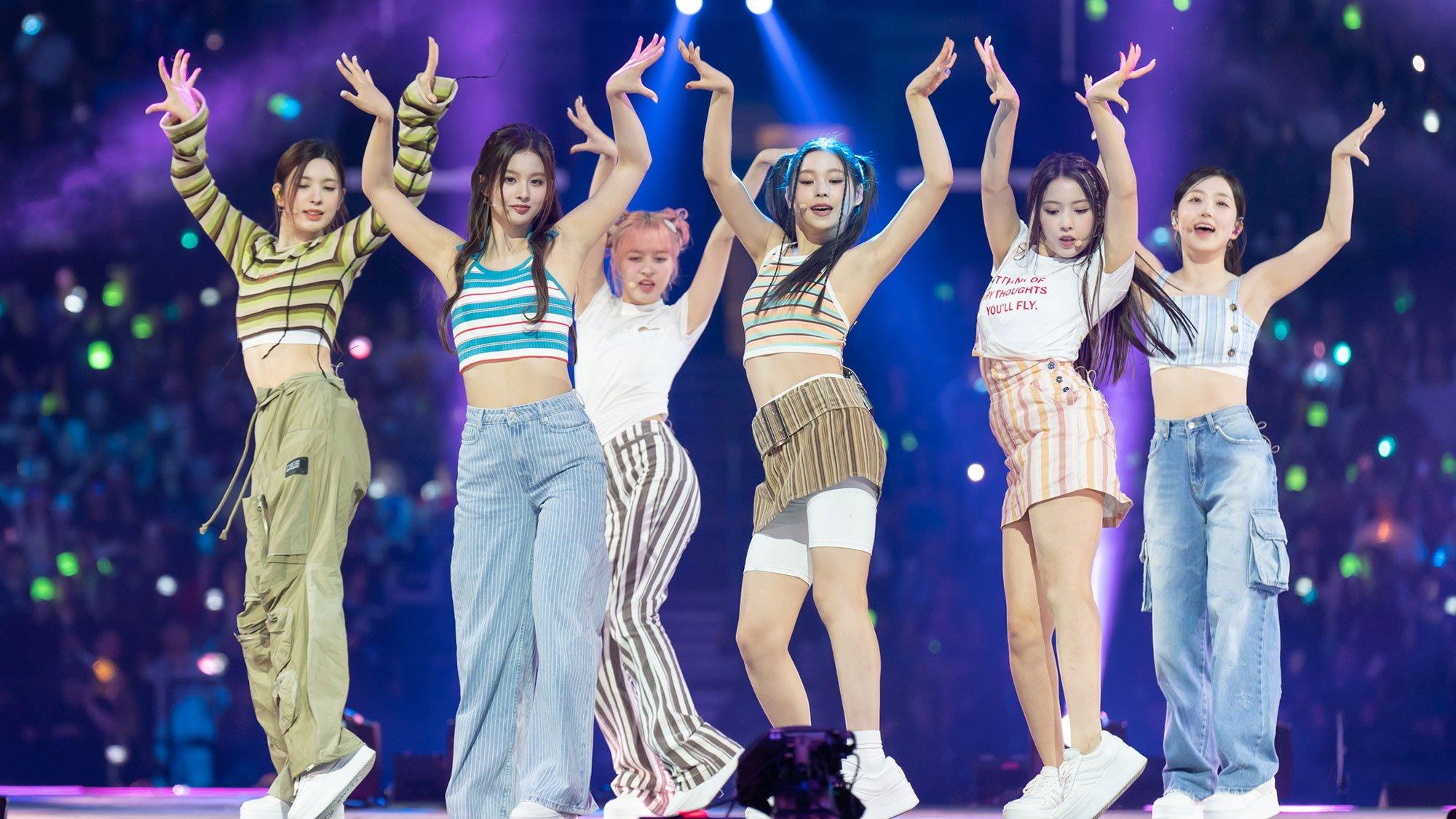
Photo: CJ ENM
list
KCON L.A. 2024 Returns: Get Ready With This Playlist Featuring NCT 127, Zerobaseone, ENHYPEN, Zico & More
The ultimate K-pop festival-convention returns to Los Angeles July 26-28, featuring a star-studded lineup with over 20 artists — including ENHYPEN, NCT 127, and Jeon Somi — interactive experiences, and unforgettable performances.
Ever since it first began in 2012, KCON has been a delightful surprise for attendees. Turn right on the convention floor, you might receive a goodie bag filled with high-quality skin care products. Turn left, and you could stumble into the first-ever performance of a K-pop group in the U.S. All this happens before the main concert even begins at night.
Returning to the L.A. Convention Center and Crypto.com arena from July 26-28, this year’s hybrid South Korean pop culture festival-convention event will host over 20 artists.
The line-up ranges from popular acts around like ENHYPEN and NCT 127 to '90s K-pop legends g.o.d and hip-hop icon Tiger JK (aka Drunken Tiger), plus burgeoning acts, including the newly formed seven-member girl group, IZNA, from the TV competition show I-LAND 2. KCON L.A. 2024 offers an array of musical exploration for anyone enraptured by the South Korean music scene.
Read more: 11 Rookie K-Pop Acts To Know In 2024: NCT Wish, RIIZE, Kiss Of Life & More
After days of meet-and-greets, showcase performances, and a special KCON Stage, each night of this year's KCON will culminate in a full-blown concert that will air in South Korea as part of the M Countdown music show.
Whether you’re a fan of soloists like Taemin, Zico or Bibi, girl groups like Kep1er and NMIXX, or boy bands like Zerobaseone and TWS, this KCON is undoubtedly for you. There are also surprises for anyone intrigued by changing entertainment technology, like Apoki, a virtual singer designed as a bunny from outer space.
While you may not (yet!) be a fan of all these artists, familiarize yourself with all that they have to offer with this playlist featuring some of their most popular and newest songs ahead of this year’s KCON L.A.
More K-Pop News
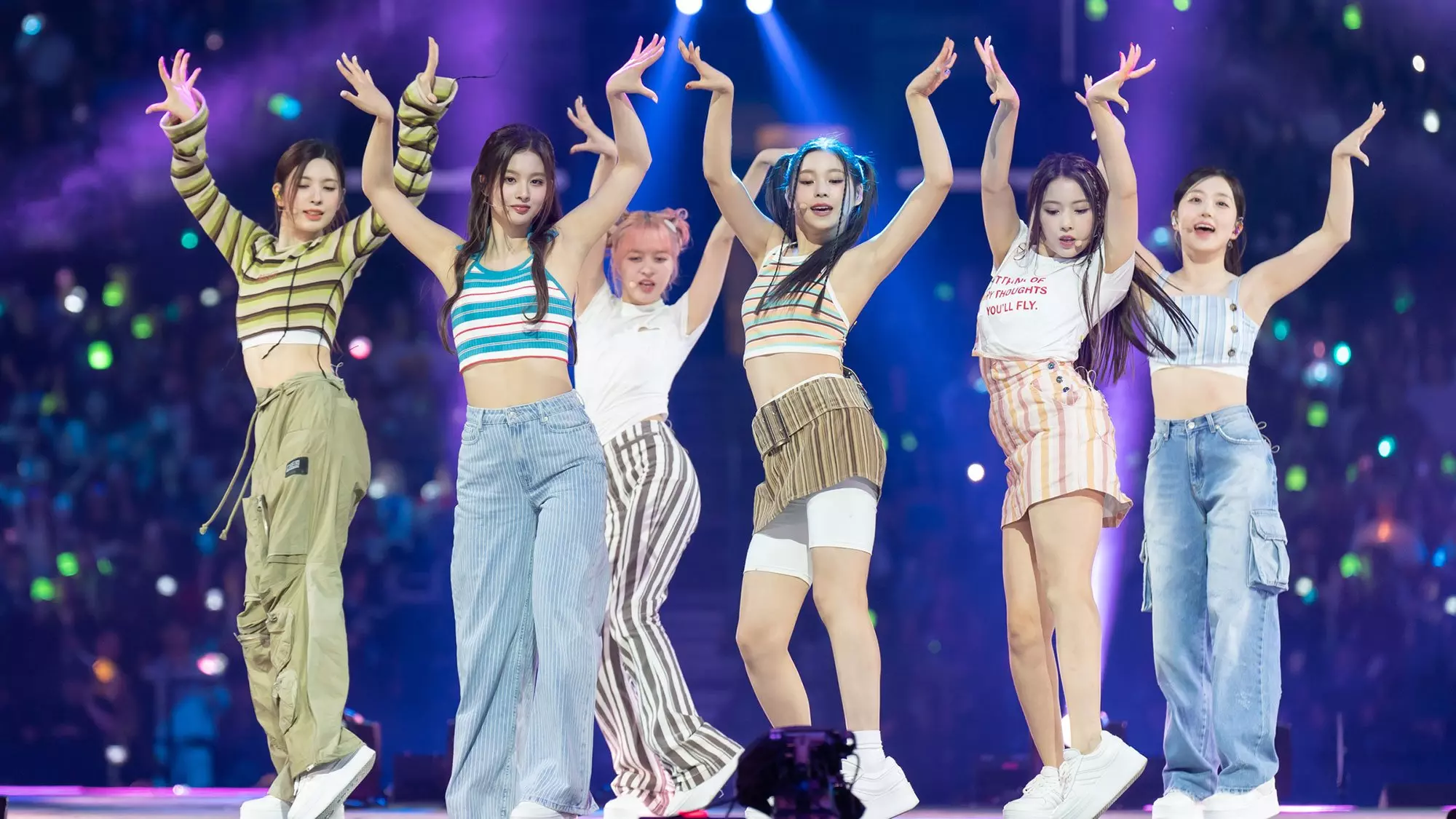
KCON L.A. 2024 Returns: Get Ready With This Playlist Featuring NCT 127, Zerobaseone, ENHYPEN, Zico & More
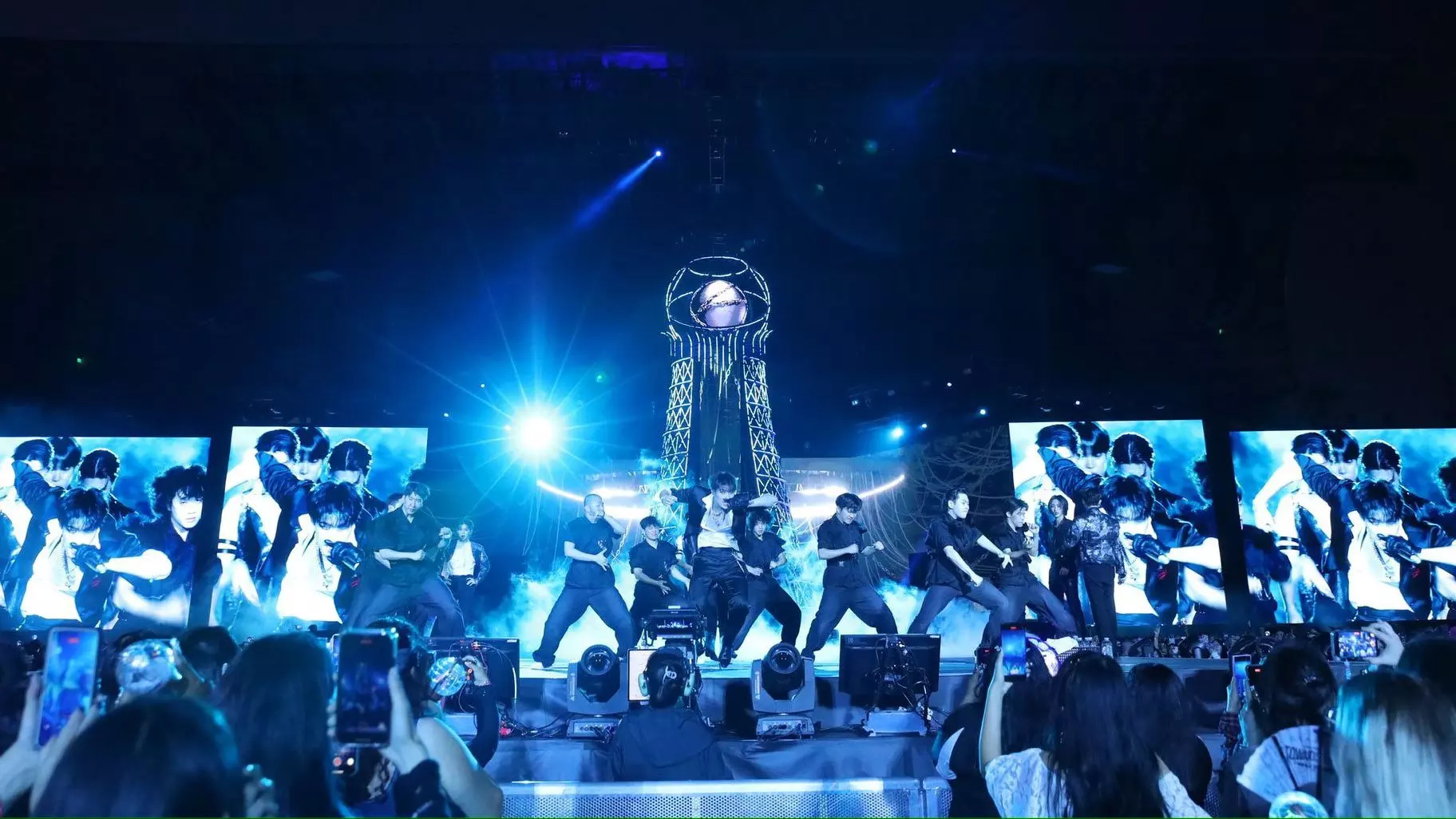
ATEEZ’s First U.S. Stadium Show Was A Triumph & Testament To Their Growth
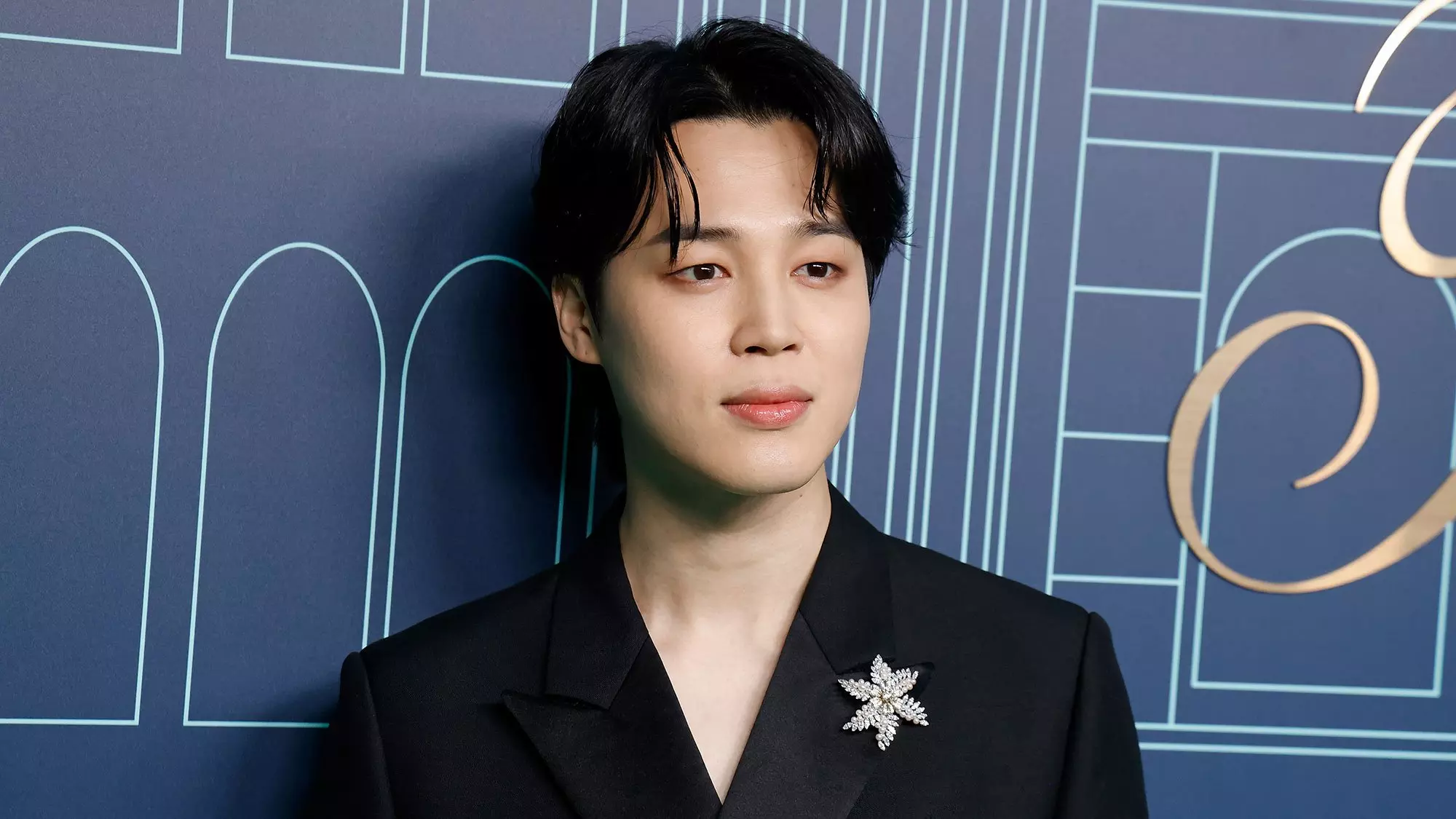
5 Takeaways from BTS Jimin's New Album, 'MUSE': A Bold Exploration Of Love And Inspiration

NCT 127 Essential Songs: 14 Tracks You Need To Know From The K-Pop Juggernauts

ENHYPEN And JVKE "Say Yes" To Cross-Cultural Collabs & Exploring New Genres
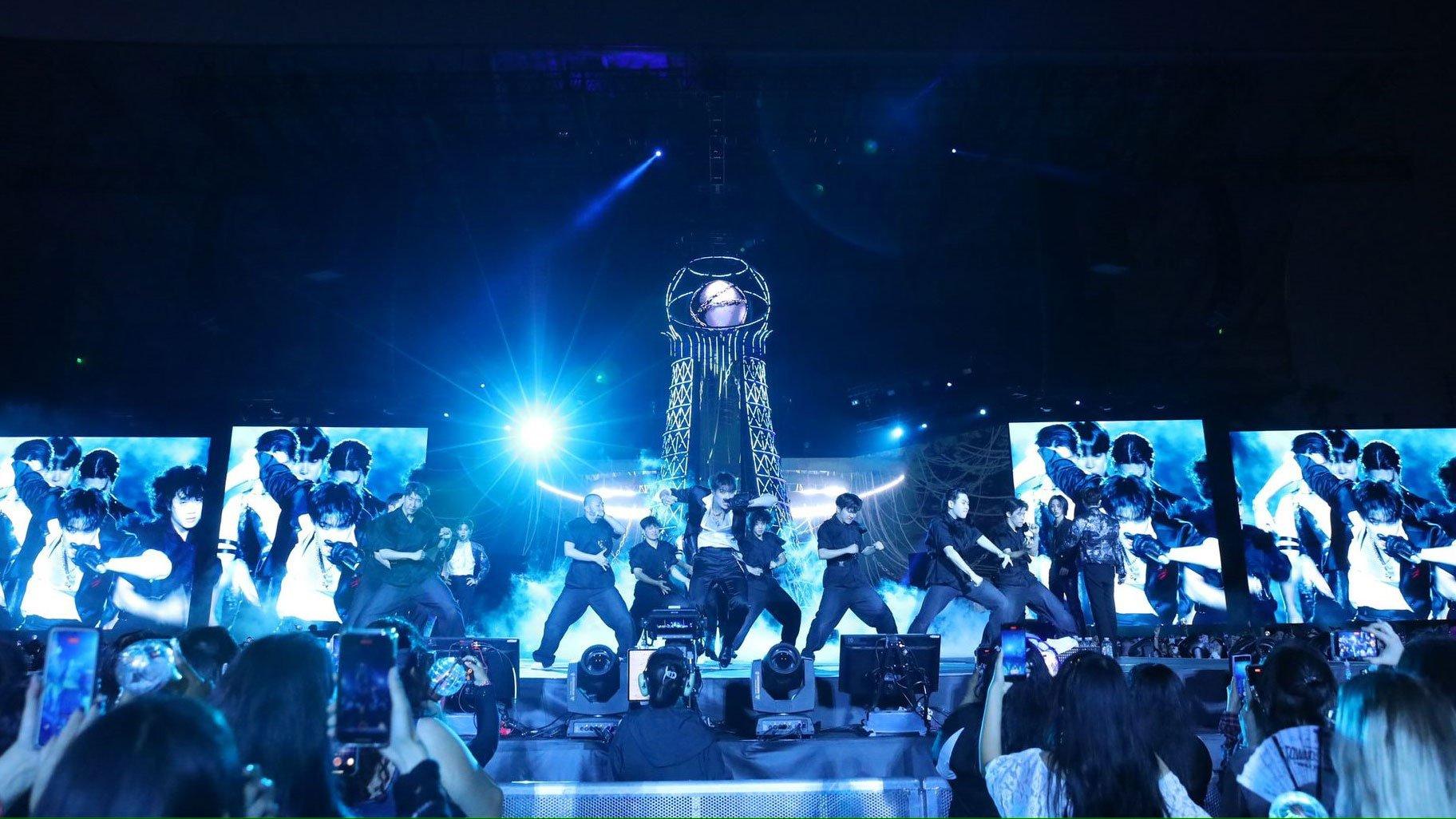
Photo: KQ Entertainment
news
ATEEZ’s First U.S. Stadium Show Was A Triumph & Testament To Their Growth
During two performances at L.A.'s BMO Stadium, the fast-rising K-pop boy group dazzled audiences with drama, dance, and a deep appreciation for how far they've come.
On July 20, K-pop boy group ATEEZ stepped foot onto one of their largest stages yet for their first U.S. stadium show. The scene at Los Angeles’ open-air BMO Stadium was a far cry from the group's L.A. performance in 2019 — their first tour stop ever — at the petite Globe Theater, a former movie palace with a tenth of BMO’s capacity.
Even then, as a five-month-old rookie group, fans (called ATINYs) saw a remarkable promise in Hongjoong, Seonghwa, Yunho, Yeosang, San, Mingi, Wooyoung, and Jongho. In the years since, ATEEZ has developed a growing presence in the States, even being the subject of a first-of-its-kind GRAMMY Museum pop-up. If the BMO Stadium performance was any indication, ATEEZ have officially hit their stride.
Read more: Inside The GRAMMY Museum's ATEEZ & Xikers Pop-Up: 5 Things We Learned
The nearly sold-out July 20 show felt like a level up, and not just because of the size of the venue. "As we performed, I really felt like ATEEZ has grown so much," singer Yunho said near the end of the night. He’s not wrong: they’re undoubtedly more confident than ever. Perhaps that’s because the octet made history earlier this year as the first K-pop boy group to perform at Coachella. Regardless, ATEEZ's growth in both production and showmanship was palpable.
If you missed ATEEZ’s two nights in L.A., don’t worry: K-pop’s resident pirate kings (more on that title later) have more up their billowy sleeves. In the spirit of their never-ending grind, the Towards the Light: Will to Power tour has nine more North American stops, including New York’s Citi Field. Read on to find out why you won’t want to miss these fast-rising K-pop idols.
The Members Are As Good Apart As Together
ATEEZ’s motto is "eight makes one team" for good reason. Individually, their talents and tastes are prismatic, yet complement each other perfectly — a fact that comes into startling clarity midway through the show, when the group breaks off into units and solos.
Equal parts erotic and controlled, trap banger "IT’S You" gives Yeosang, San, and Wooyoung room to deploy their enigmatic charms as a trio; ATEEZ’s purveyor of belted high notes, Jongho, dips into his deeper register on solo ballad "Everything"; diametric duo Hongjoong and Seonghwa spit fire about the rapport that arises from their differences on red-hot cypher "MATZ": "M-A-T-Z like allergy, we don’t really fit together / Yeah, yeah, but on stage, reacting to that synergy."
Then there’s the wistful "Youth" from dance class pals Yunho and Mingi. The two go way back — something they reminded audiences of by acting out a fictionalized version of a real phone call they shared the day before auditioning for KQ Entertainment. "Imagine us taking the stage together someday," Yunho said. "Sounds amazing, right?"
Read more: ATEEZ Are Here To Win The Hearts Of K-Pop Fans
ATEEZ Know How To Turn Up The Drama
ATEEZ's lore runs deep. In their conceptual universe, what began as a swashbuckling tale of pirates in search of treasure evolved into an anarchic manifesto about toppling the world order. Recently, in a Wild West turn, they’ve been masquerading as cowboys dedicated to the daily hustle.
Every ATEEZ performance has a story; on this tour, the theme is light. But, as always in ATEEZ’s oeuvre, that light can’t exist without a darkness seeking to quash it. The way they convey this narrative — acting, stage decoration, extras — is a masterclass in drama, fit for the theater as much as a stadium.
Watch: Global Spin: Watch Ateez Represent South Korea With Kinetic Performance Of "The Real"
They’re In Their Element Onstage
The success of ATEEZ’s storytelling is bolstered by the group’s unearthly stage presence. In that regard, Seonghwa led the pack, moving like a man possessed. Whether crawling on his knees, rolling his eyes back, or slinging a sword to symphonic backing, the lithe dancer never let the air-tight facade slip — except, of course, when it came time to offer a couple of warm words to fans.
Like Seonghwa, the rest are also shockingly versatile. San effortlessly switches between agile body rolls and thigh caresses in the dangerously sensual "Cyberpunk," then vigorously glides his arms through air at the climax of "Say My Name," a gesture that has only grown in power and potency over time.
ATINYs Do Their Best To Match ATEEZ’s Energy
"There [are] more than 20,000 singers in here," Hongjoong said as the lead-in to the soaring "Dance Like Butterfly Wings." "Can you show me your singing?"
Sing they did: All night, the crowd brought an energy as fierce and passionate as ATEEZ, especially when barking at charismatic rapper Mingi, much to his apparent enjoyment.
But the single noisiest moment came during "Guerilla." At a certain point, Yunho shouted a ferocious "Make some noise!" as a cue and ATINYs know it’s time to warm up their vocal chords; while Jongho belts some of his highest notes yet, fans roared "Break the wall!" at the top of their lungs, loud enough to rise above the stadium enclosure.
Fan chants and cheers are a mainstay of K-pop shows in South Korea, but due to differences in concert etiquette and language barriers, most don’t make their way overseas. ATEEZ and their fans broke that wall, and built a bridge in its place.
It’s A Full Circle Moment In Their Career
That ATEEZ chose to drop anchor in Los Angeles for their first U.S. stadium show feels especially momentous. The band has history in Southern California, having trained at L.A.-based dance studios Movement Lifestyle and Millenium Dance Center prior to their debut. ("Our second hometown!" San said during the show.)
"Even though it was six years ago, it feels like just yesterday," Hongjoong said in his encore speech. "It’s absolutely an honor to be right here, now, in such a big venue."
That’s a short time to come as far as they have, without slowing pace. "But, you know, it doesn’t stop," Hongjoong continued. "We will keep going to the next step and the next step, with you. Let’s keep making moments to shine even brighter, together." And if these three hours are any indication, ATEEZ has a light that won’t soon be dimmed.
More News About ATEEZ

ATEEZ’s First U.S. Stadium Show Was A Triumph & Testament To Their Growth
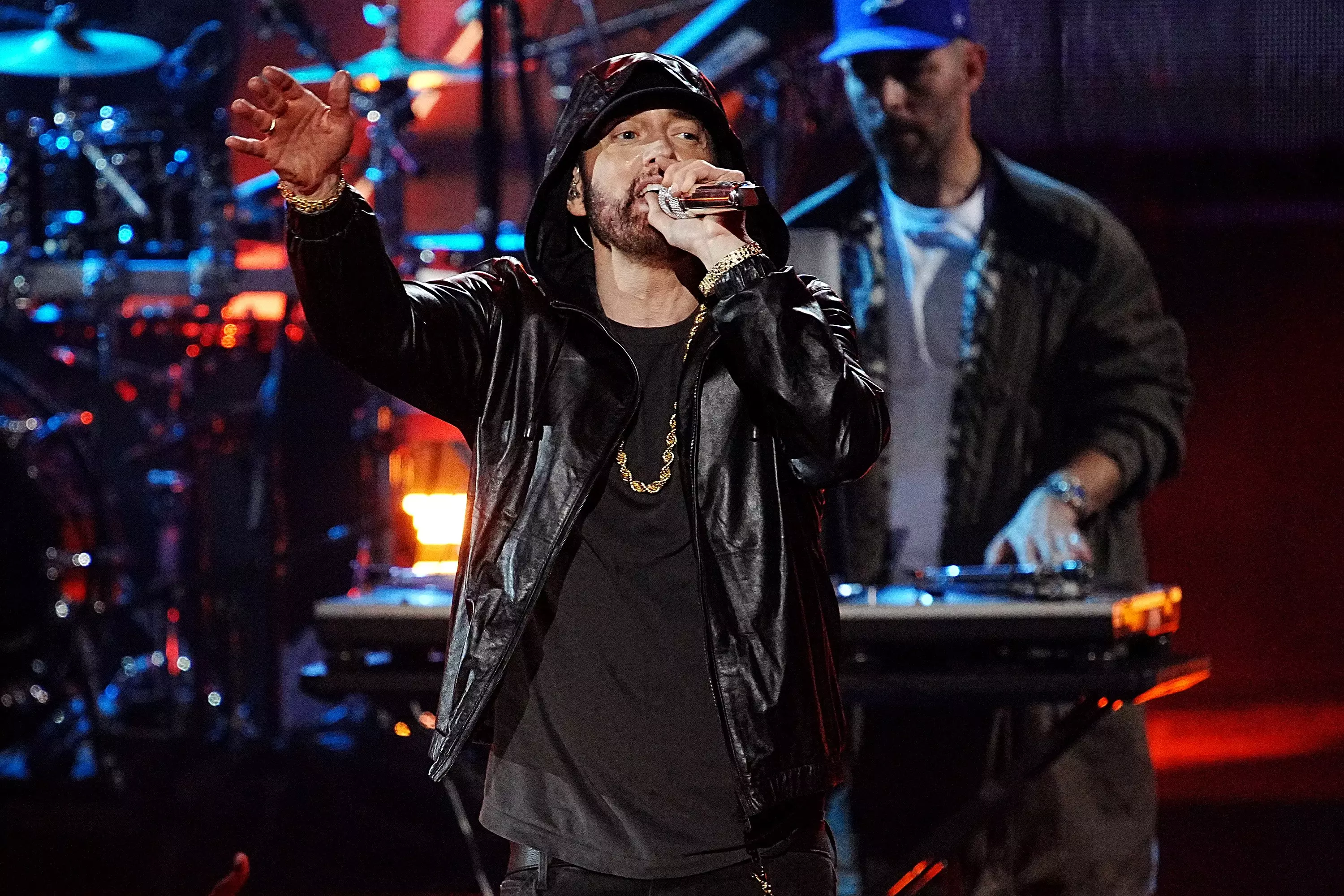
New Music Friday: Listen To New Albums & Songs From Eminem, Maya Hawke, ATEEZ & More
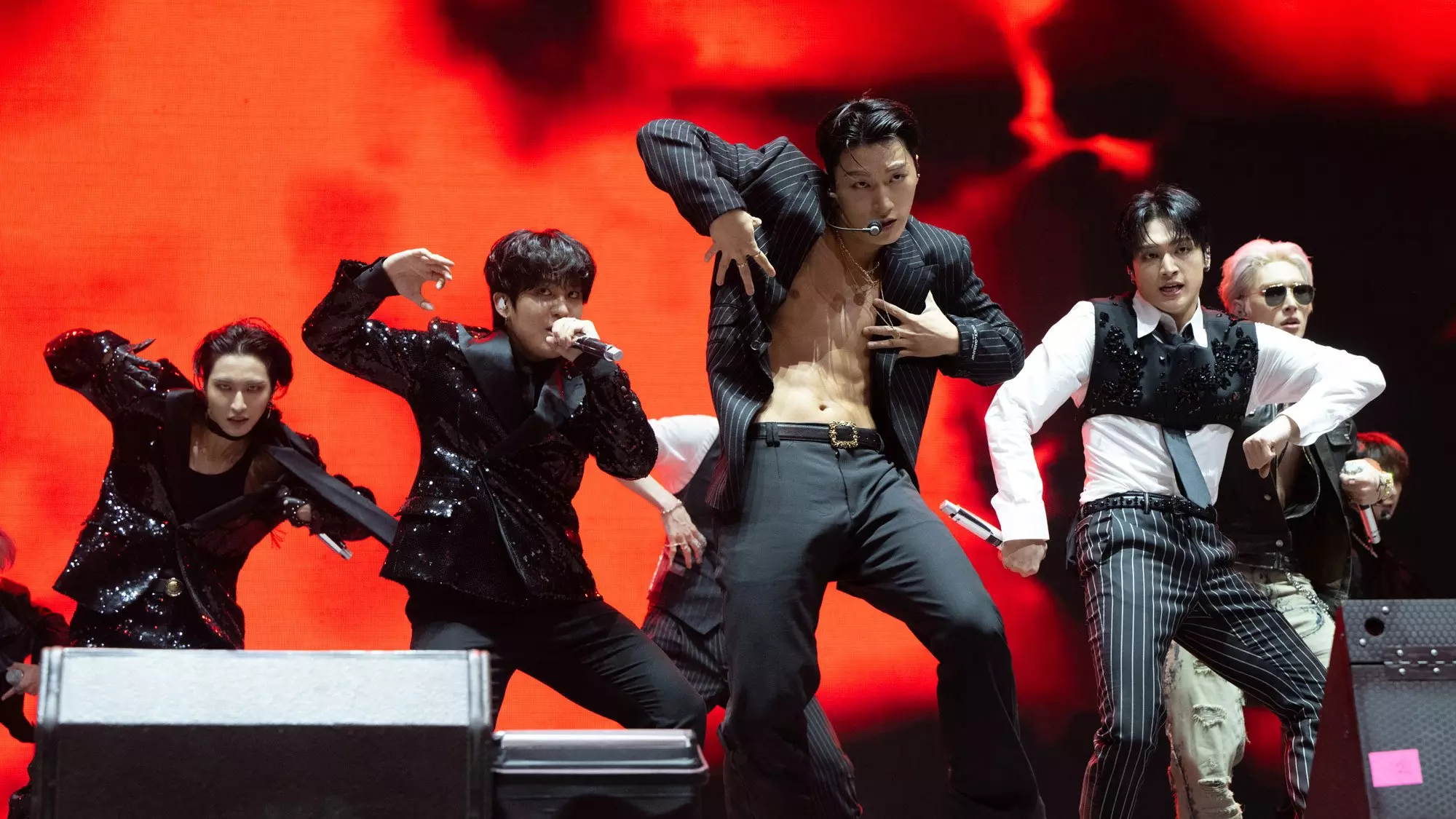
K-Pop Summer 2024 Guide: ATEEZ, IU, TXT & More Live In Concert & On Tour
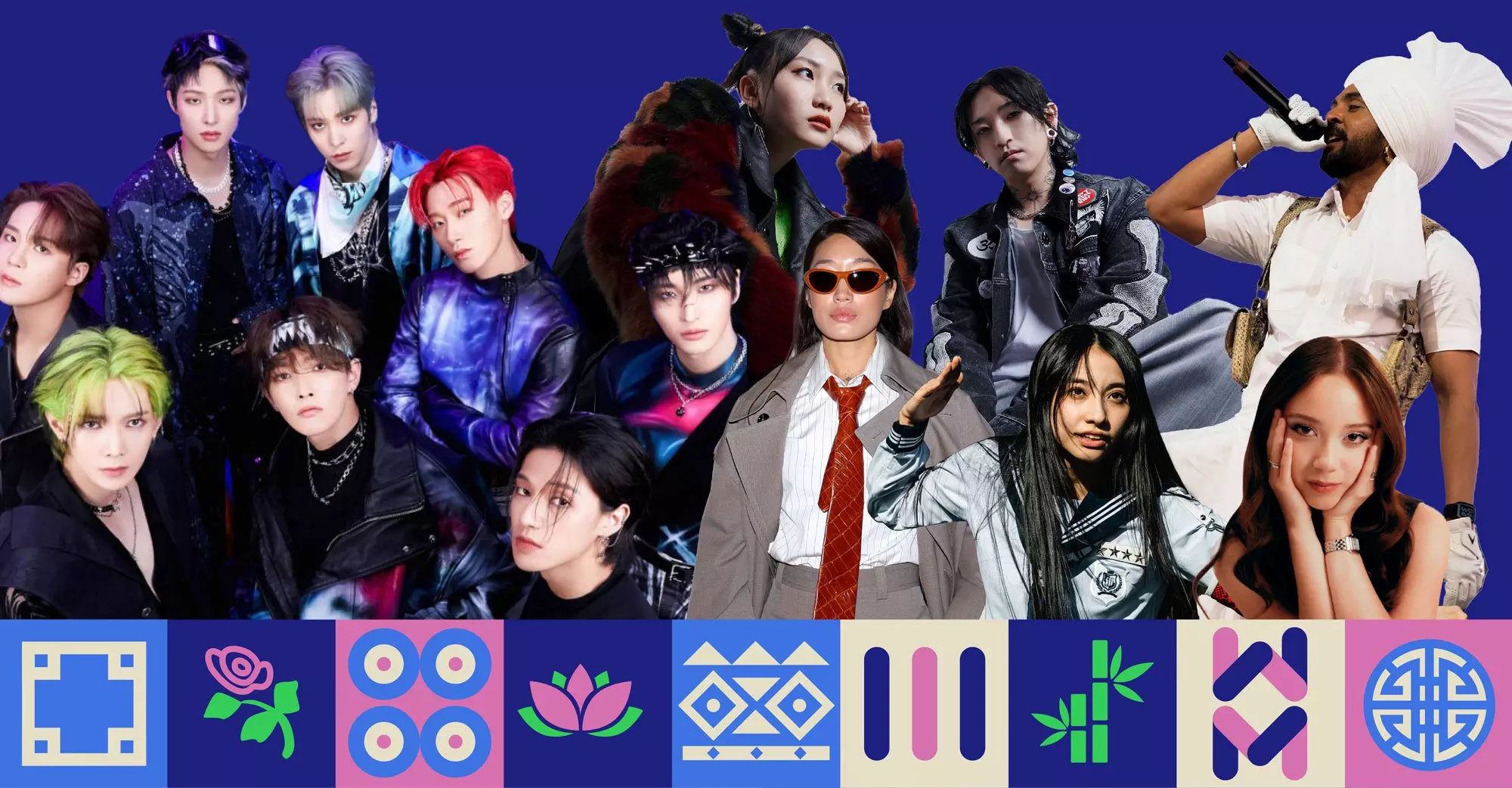
Leap Into AAPI Month 2024 With A Playlist Featuring Laufey, Diljit Dosanjh, & Peggy Gou
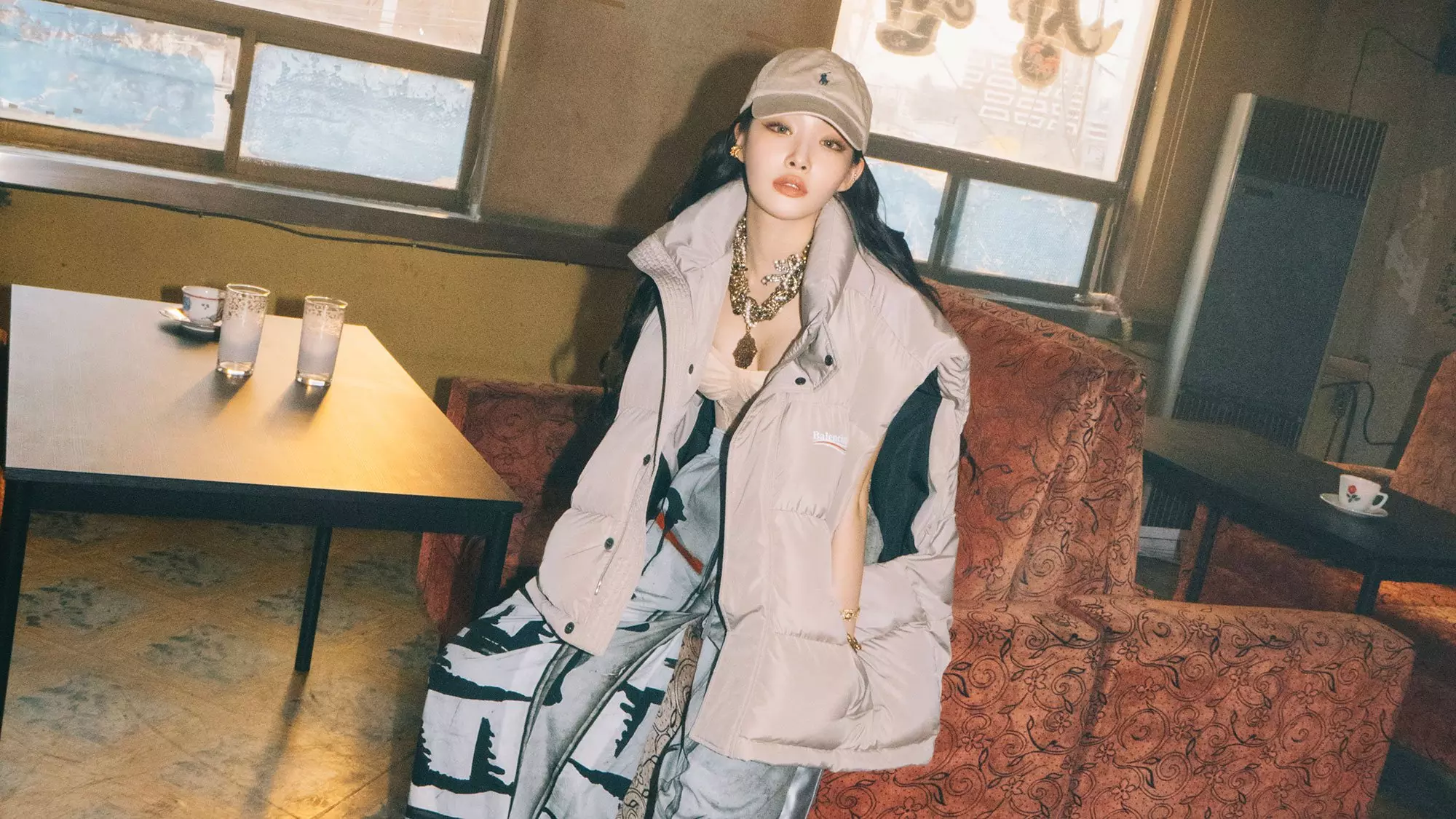
Chung Ha Returns: On 'EENIE MEENIE,' The K-Pop Soloist Is Ready To Step Back Into The Spotlight
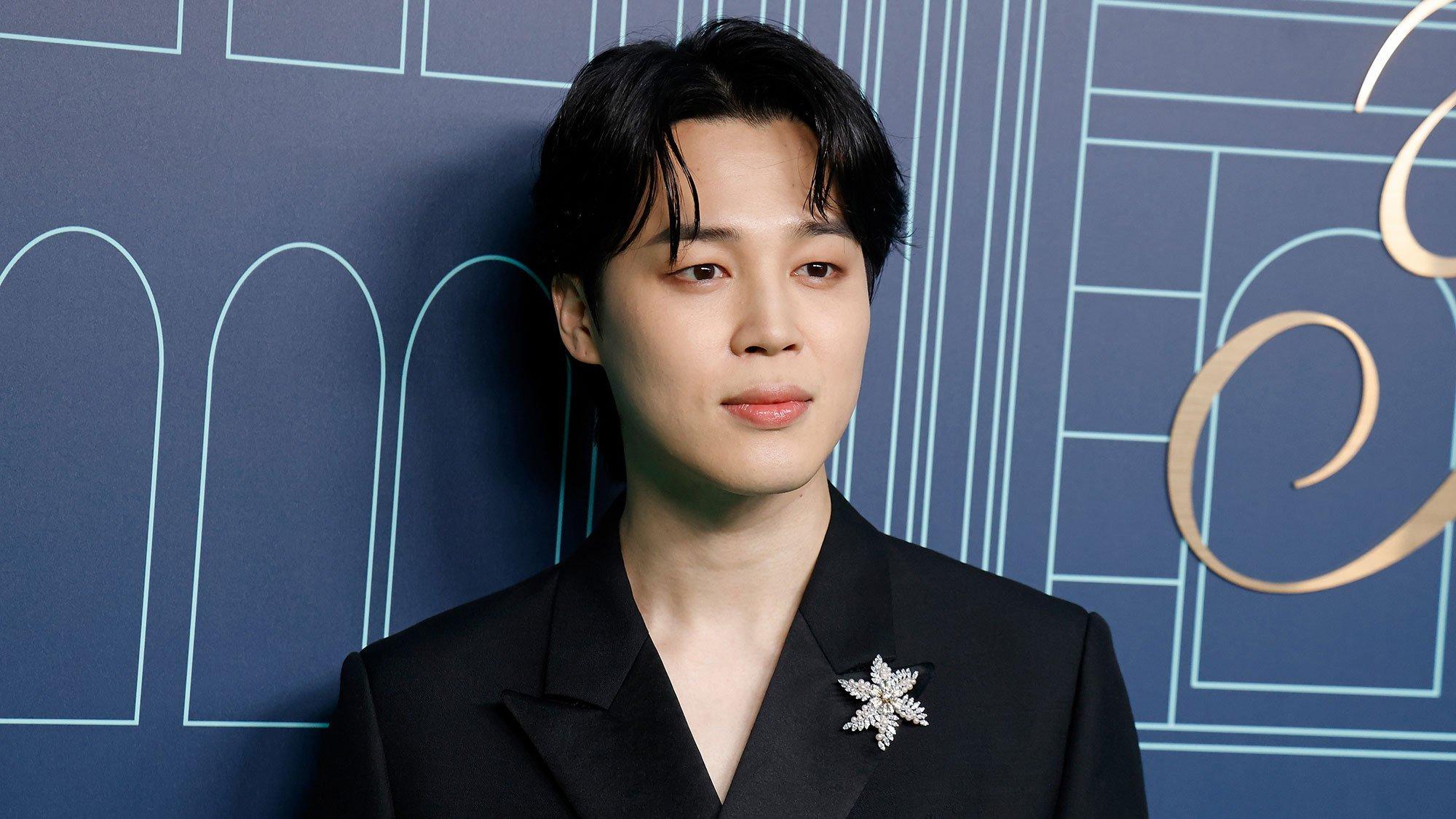
Photo: Taylor Hill/Getty Images
list
5 Takeaways from BTS Jimin's New Album, 'MUSE': A Bold Exploration Of Love And Inspiration
Jimin's second solo project, 'MUSE,' showcases his artistic growth and versatility, featuring a blend of nostalgic sounds, personal reflections, and standout collaborations.
K-pop juggernauts BTS are still on hiatus due to military enlistments, except for Jin, who was discharged last month. Yet, all members remain booked and busy in their solo endeavors.
Documentaries, travel shows, special singles — you name it, they carefully prepared it before starting their duties. And after new records from j-hope (HOPE on the Street) and RM (Right Place, Wrong Person) this year, the next in line is Jimin, who dropped MUSE today.
The album comes almost a year and a half after his debut EP, FACE, which placed Jimin as the first South Korean soloist to top Billboard's Hot 100 chart. In it, the Busan-born star proved his versatility and prowess standing on his own, captivating audiences old and new with his sensitive charisma.
In MUSE, Jimin introduces a new facet of his musical identity: bolder and more confident, but still a big softie at heart. To celebrate the beginning of a new era — and to ease the wait until his discharge next year — here are five key takeaways from Jimin's latest release, MUSE.
It's Another Jimin-Led Production
FACE was a proper introduction to Jimin's artistic vision, with him contributing to every aspect of the project and co-writing all of its tracks, minus the instrumental "Interlude: Dive."
Now, he takes it up a notch for MUSE, showcasing his growth by co-writing six out of seven tracks, and co-producing two of them: "Rebirth" and "Interlude: Showtime." Once again, Jimin had a hand on all of the album's components, including its concept and visuals, and bore down another layer of his ever-evolving skills.
If FACE introduced us to a vulnerable and sometimes desperate Jimin, MUSE charges forward with main pop boy energy, tender but commanding, sweet but sassy. It works both as a gift to fans and a tool to get to know Jimin even deeper.
He’s Still In Search Of His Muse
"We never met, but she's all I see at night/ Never met but she's always on my mind/ Wanna give her the world/ And so much more/ Who is my heart waiting for?" Jimin sings in MUSE's track, "Who." As the lyrics suggest, MUSE's main theme is Jimin's journey to find the source of his inspiration — his muse.
The album's seven tracks are all interconnected by love and longing, with Jimin searching for the one but getting lost in the way, and back at it once more. Through this perspective, he continues his path of self-discovery. After looking at his own FACE in the mirror, who else does he see? Who else instigates him enough to make art?
A Stellar Team Backs Up The Effort
To write and produce MUSE, Jimin enlisted longtime collaborators Pdogg, Ghstloop, Evan, and Supreme Boi. They have also been working with BTS for years, and know just what Jimin wants and needs in his songs.
But to make this album even more special, Jimin also collaborated with a fresh crop of professionals. Lead single "Who" was co-written and co-produced by Jon Bellion, Pete Nappi, and Tenroc, while Ayo the Producer and Kofo co-signed the fan-dedicated "Closer Than This." OneRepublic's Ryan Tedder helped pen "Be Mine," and Tommy Brown has writing credits on "Rebirth" and "Smeraldo Garden Marching Band (feat. Loco)."
Aside from Korean rapper Loco, MUSE also features American actress and singer Sofia Carson on the smooth duet "Slow Dance." Together, these names assembled a cohesive, yet diverse LP, brimming with influences from several decades, genres, and countries at once.
The Smeraldo Flower Makes A Comeback
Back in 2017, when BTS was in their LOVE YOURSELF era, they also introduced to their lore a fictional blue flower named Smeraldo. Symbolizing "a truth that cannot be told," its legend was better explored in the track "The Truth Untold (Feat. Steve Aoki)," and offered important clues to understanding that era's messages.
However, as years passed, the Smeraldo flower was largely forgotten from BTS's new works — until MUSE. Here, Jimin brings back the blue flower as one of the albums' visual concepts, and as the main motif behind pre-release "Smeraldo Garden Marching Band (feat. Loco)."
According to a press statement, the track's lyrics "express the longing to confess and find love on behalf of those unable to articulate their feelings," hence the use of Smeraldo. As for its curious title — loosely inspired by The Beatles' 1967 album Sgt. Pepper's Lonely Hearts Club Band — it came first as a casual nickname between Jimin, Pdogg, Ghstloop, and Evan while they worked together on FACE, and eventually became real.
It’s Packed With Nostalgia
If you miss Justin Timberlake's Justified sounds and other early-2000s gems, MUSE is here to take you on a nostalgic trip. Inspired by pop, R&B and hip hop from that era, Jimin gave his latest album a vintage, cozy veneer.
These references are predominantly visible on "Who" and its delightful guitar strums, but "Slow Dance (feat. Sofia Carson)," for example, sounds like an updated version of Usher and Alicia Key's "My Boo," and "Be Mine" could be the 2020's lovechild of Santana's "Maria Maria" and Sean Paul's "I'm Still In Love With You."
Another strain of references can be seen in "Smeraldo Garden Marching Band (feat. Loco)," which extends The Beatles' inspiration to experimental samples and marching band percussion, and creates a quirky piece that strays away from any current trends. "Interlude: Showtime" drinks from the same source, featuring a circus brass and drum line that introduces us to the singularity of "Smeraldo Garden."
While infused with nostalgia, MUSE still appeals to today's tastes, and offers a seamless, polished listen. It stands as a testament to Jimin's artistic growth, and while he might not have found his muse yet — he is certainly a source of inspiration for many.
More BTS News

5 Takeaways from BTS Jimin's New Album, 'MUSE': A Bold Exploration Of Love And Inspiration

GRAMMY Museum Partners With HYBE For New K-Pop Exhibit 'HYBE: We Believe In Music' Opening Aug. 2
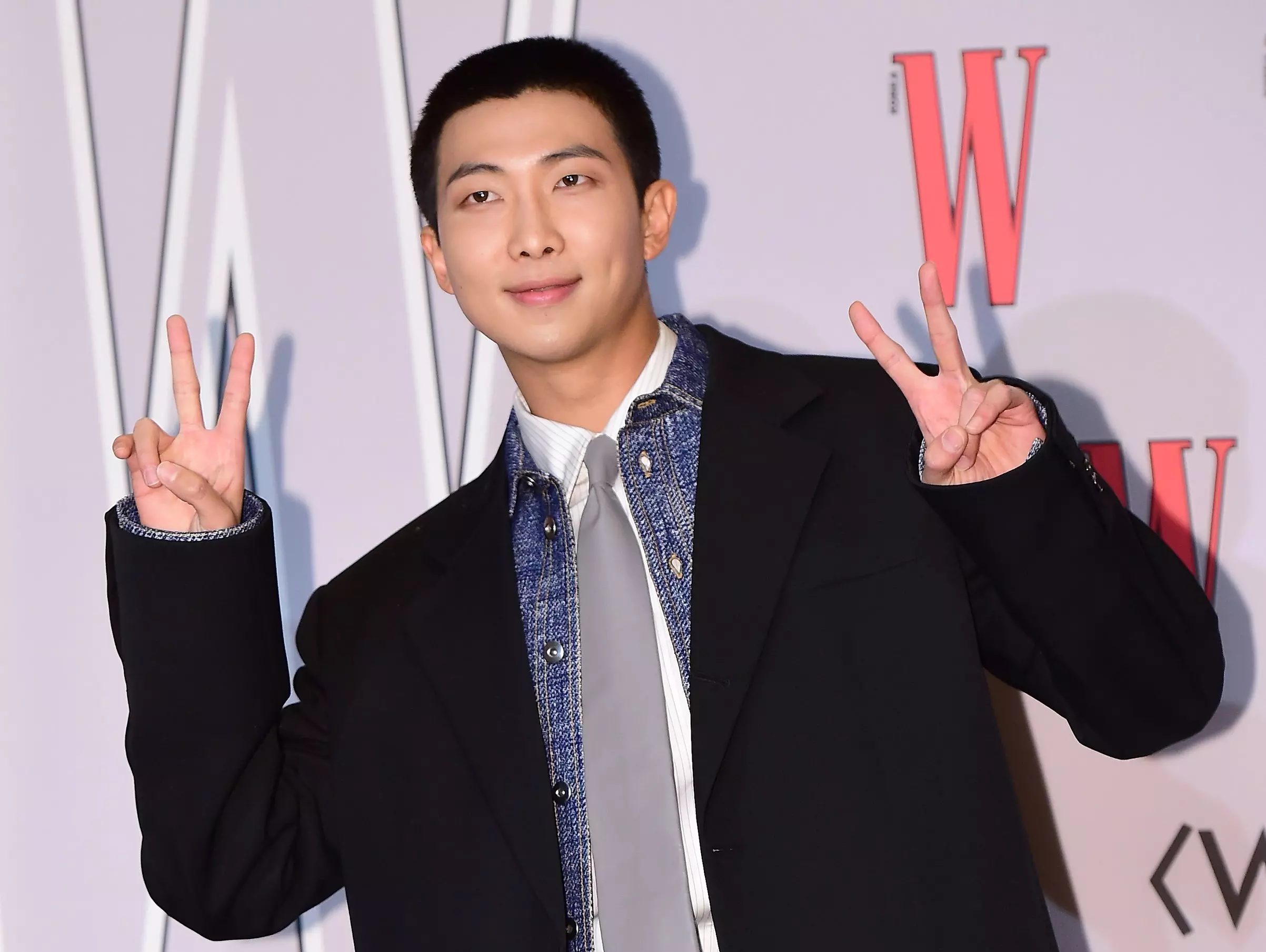
Stream RM's New Album 'Right Place, Wrong Person': See The Tracklist, "LOST!" Video & Special Guests
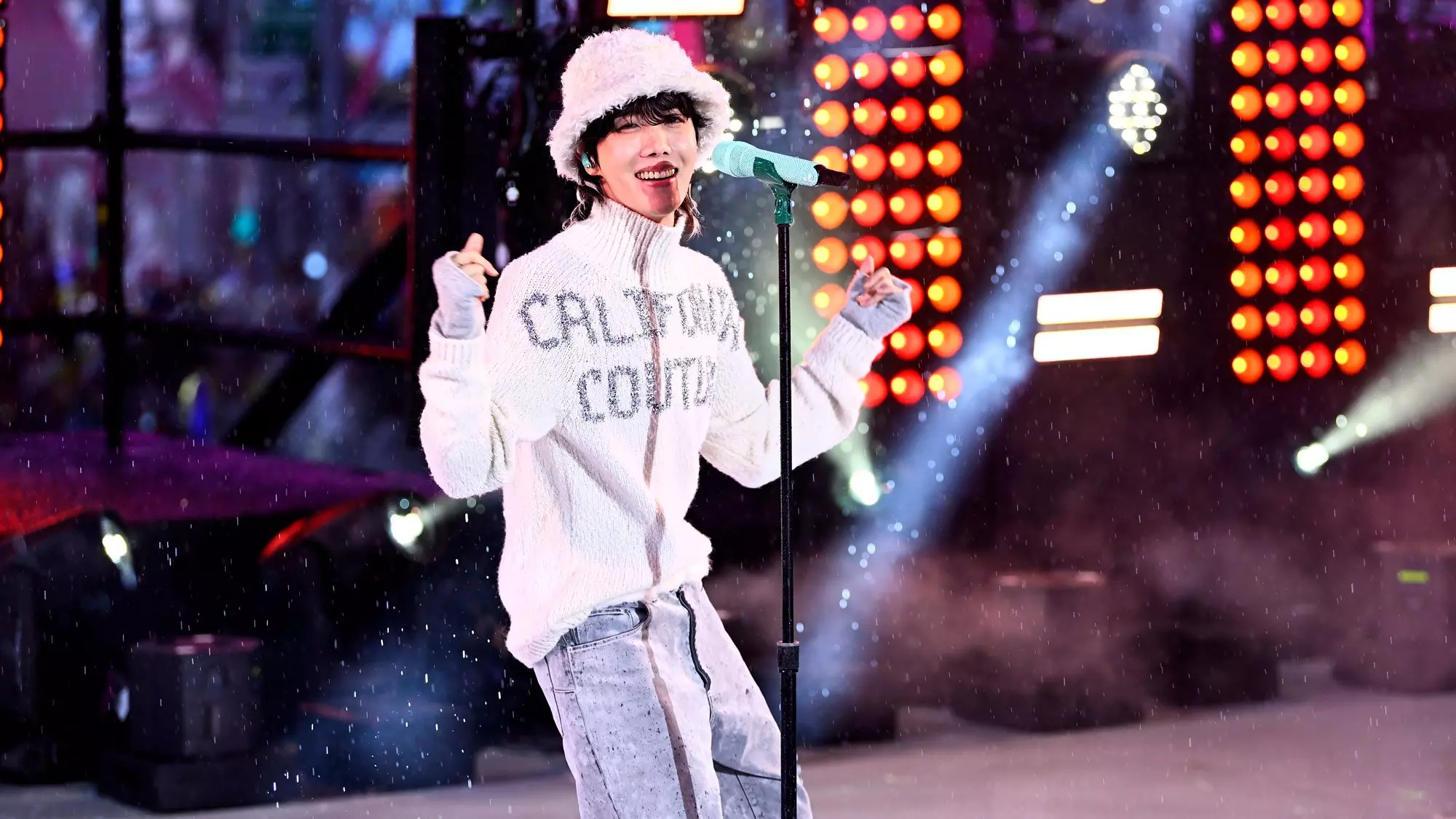
J-Hope's Road To 'Hope On The Street Vol.1,' From Falling Back In Love With Dance To Tying Together His Global Influences
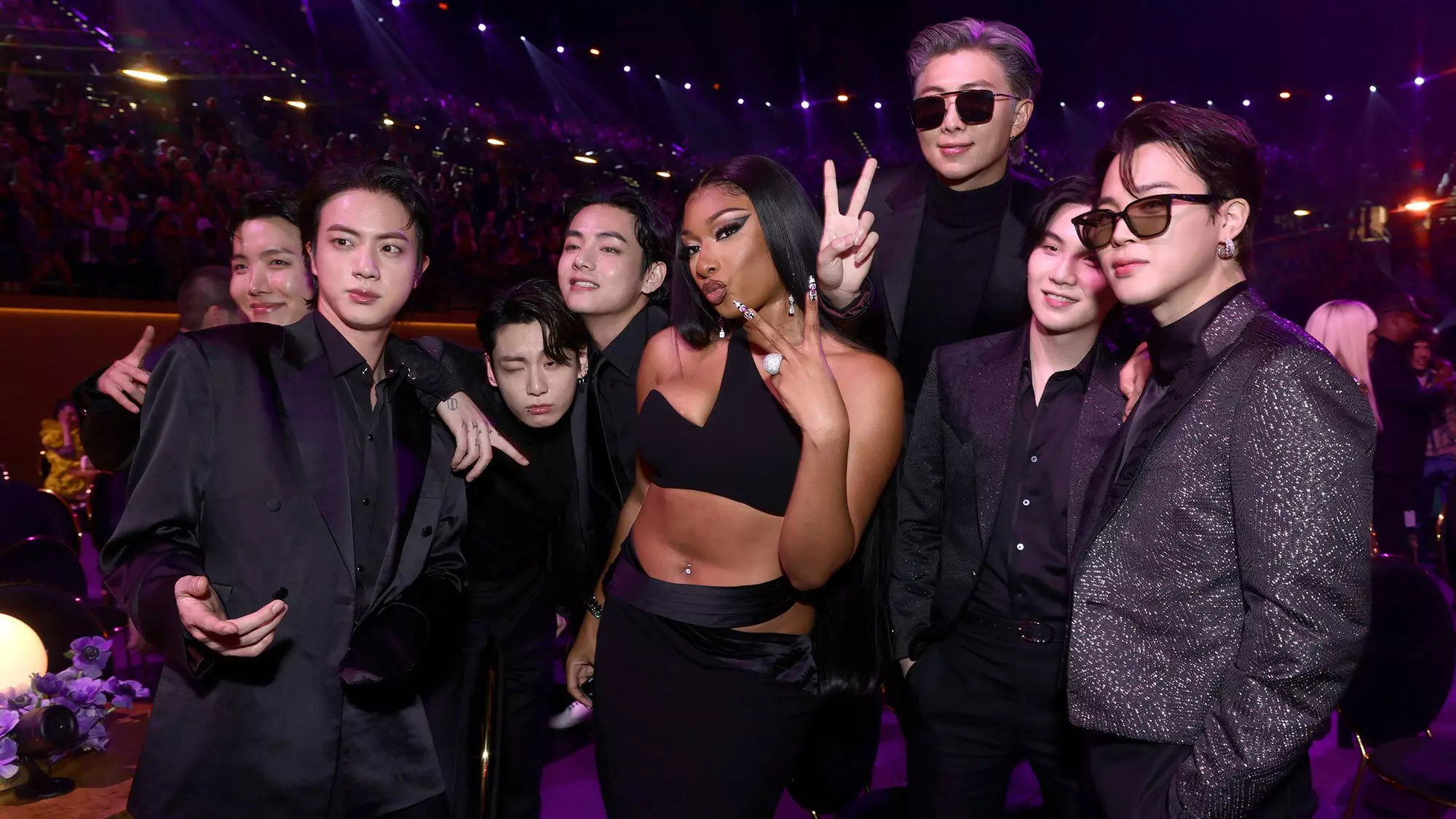
9 Essential K-Pop/Western Collabs: From BTS And Megan Thee Stallion, To IVE And Saweetie
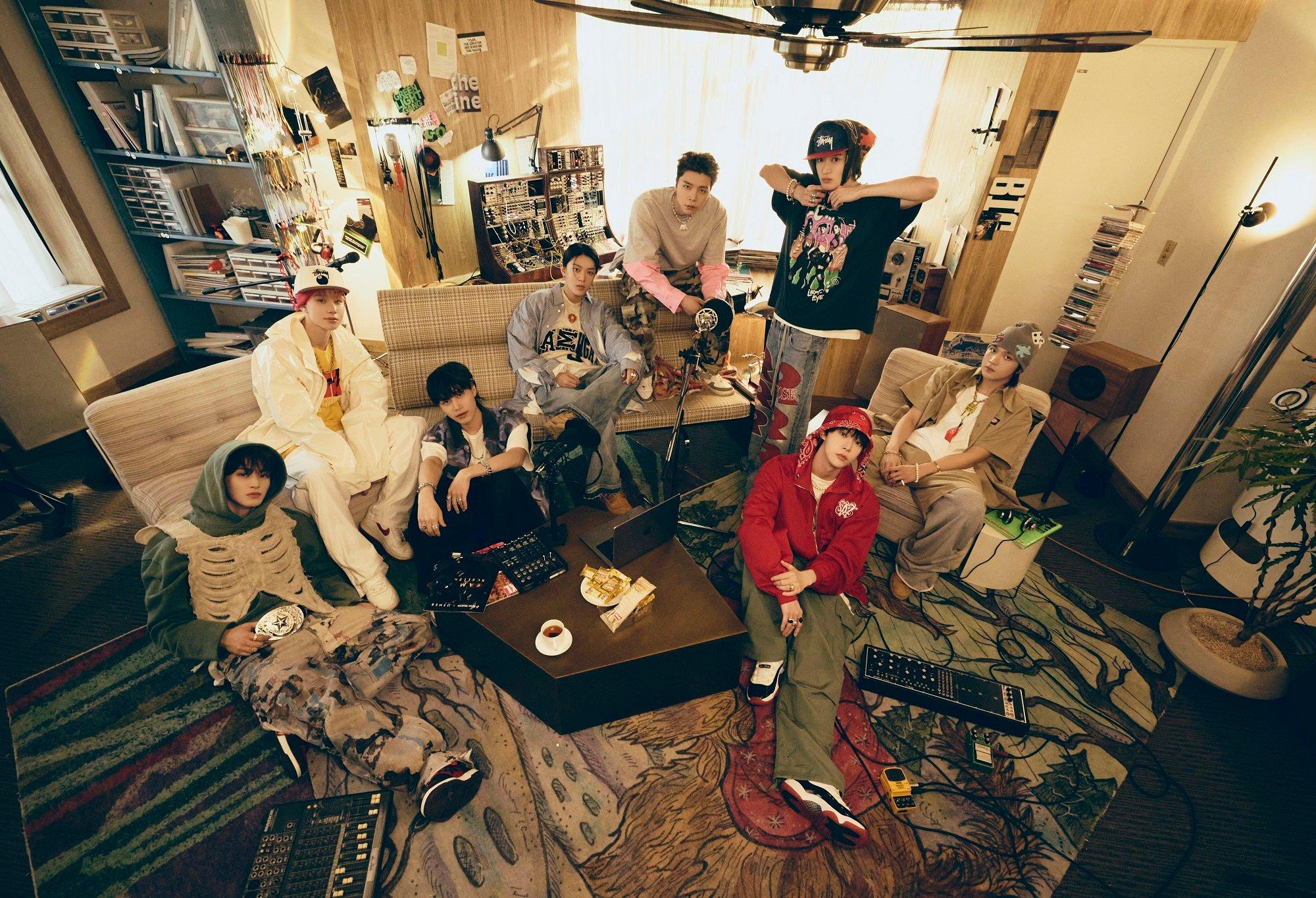
Photo courtesy of SM Entertainment
list
NCT 127 Essential Songs: 14 Tracks You Need To Know From The K-Pop Juggernauts
Eight years after their debut, NCT 127 have released their sixth studio album, 'WALK.' Before you dive in, press play on this chronological list of NCT 127 hits and deep cuts that show their musical ingenuity — from "Highway to Heaven" to "Pricey."
In the K-pop industry, the Neo Culture Technology juggernaut stands out as a cosmopolitan universe. The project is characterized by its highly experimental approach, where each of NCT's subgroups contribute a unique twist.
This is especially true of NCT 127. Comprised of Taeyong, Taeil, Jaehyun, Johnny, Yuta, Doyoung, Jungwoo, Mark, and Haechan, NCT 127's identity was forged via innovative arrangements that defy convention.
During their rookie days, this ahead-of-its-time strategy felt polarizing and raised a few eyebrows. However, after some years of ambivalence (and with some lineup changes in between), they exploded in popularity during the early pandemic with their second studio album, NCT #127: Neo Zone. This record gave them their first title as million sellers, significantly increasing their listeners globally — many of whom embraced the group's music as an escape during quarantine.
Read more: Breaking Down The NCT System, From The Rotational NCT U To The Upcoming NCT Tokyo
Today, they are more influential than ever and their sound is more accepted in the ever-expanding scope of K-pop. Nonetheless, some K-pop listeners tend to pigeonhole the group as "noise," despite having a diverse catalog and some of the best vocalists of their generation.
Nearly coinciding with their eighth anniversary, NCT 127 released their sixth studio album, WALK on July 15. To mark this occasion, GRAMMY.com presents a song list — in chronological order — demonstrating their musical geniality, which extends far beyond the public's usual perception.
"Switch"
The group's first mini-album, NCT #127, laid the foundations of their audacious sound and paired it with vocal finesse. To wit, the lead single "Fire Truck" arrived as an unapologetic disruptor shaking up the K-pop industry.
But the bookends of the EP are uniquely contrasting. Whereas "Fire Truck" opens with bold posturing, the outlier "Switch" concludes the ride with a more lighthearted and youthful production. In a way, this song could also be considered a prelude to the NCT universe, as it was recorded a year before NCT 127's debut, and it features members of other NCT iterations — like WayV and Dream — when they were still trainees.
"Limitless"
The name of this track is a statement of the group's boundary-pushing ethos. True to form, the song is built over a hammering backbone and lengthy synths that bite. The chorus is the highlight; its dynamic explosion of vocals only intensifies the momentum. And while the Korean version is strong, it could be argued that the Japanese rendition imbues the song with new layers of depth that truly elevate it.
It’s worth mentioning that, during the Limitless era, Doyoung and Johnny were added to the lineup, marking NCT 127’s first release with nine members — a move consistent with the original (now-defunct) concept of the NCT system.
"Sun & Moon"
Some songs are crafted for faraway souls and to offer solace to the aching heart. That's why "Sun and Moon," an evocative B-side from NCT 127's third extended play, exists as an unmissable gem.
It's a lyrical tale of longing, where Taeil, Doyoung, Johnny, Taeyong, Jaehyun, and Yuta serenade a distant love, hoping the gap will shrink and a reunion will come. The arrangement is understated but dream-like, and when the pre-chorus arrives, the most beautiful lines are unveiled: "When my moon rises/ Your sun rises as well/ Under the same sky/ In this different time/ Our hearts are connected/ Under the same sky."
"Come Back"
Co-created by GRAMMY-nominated producer Mike Daley and multi-instrumentalist Mitchell Owens, "Come Back" exemplifies maximalism, undulating between intensity and elegance.
"One of the standout aspects of this song is the creative use of chops throughout the track," Daley tells GRAMMY.com. "Even though the arrangement follows a pretty standard structure for us, these chops add a unique flavor that sets 'Come Back' apart. We got to be more experimental [for this track] and bring in some unusual elements."
The voices of Taeil and Doyoung prominently take center stage, infusing potency that ensures smooth progressions throughout the production.
"Lips"
Featured on the group's first Japanese studio album, Awaken, "Lips" is an unjustly overlooked cut that blends sensuality with hypnotizing Latin rhythms. The deeper you are immersed in it, the more enchanting it becomes, casting a spell over your mind.
Its minimalist formula is effective, and the lyrics hint at a compelling journey: "Your lips come and take me to the place to go/ The place you would know where you should go." Sometimes, less is more, and the impact can be equally powerful.
"Highway to Heaven"
"Highway to Heaven" shines as one of the crown jewels in NCT 127's discography, praised not only for its cathartic production but also for marking a turnaround in their artistry. It sees them delving into more subdued and ethereal soundworlds.
A pre-release single from their fourth mini album, We Are Superhuman, the instrumental is woven with buzzy percussion and silken guitar strings. The group's vocal prowess truly exhilarates, crescendoing a declaration of freedom during the chorus: "We'll take the highway to heaven/ Any time, anywhere I feel you/ You and I, highway to heaven/ This place where we're together is heaven."
The track reaches its pinnacle with an interlude guided by Jungwoo's velvety delivery, eventually setting the stage for Haechan's soaring voice.
"Superhuman"
"Superhuman," the lead single from We Are Superhuman, is a timeless masterpiece. The avant garde song showcases the group's expansive adaptability, exchanging their usual edge for intricate sophistication.
American singer/songwriter Adrian Mckinnon — a frequent collaborator of SM Entertainment, home of the NCT project — teamed up with South Korean producers TAK and 1Take to bring the song to life, and he recalls being "blown away" when he listened to the instrumental. "All the glitches and stutters immediately gave nostalgia," Mckinnon tells GRAMMY.com, noting the sound choices reminded him of old school video games. "[The song] kind of sits in its own lane, maybe somewhere between glitch funk and glitch hop. Maybe a little Daft Punky too?"
Mckinnon says he sat with the instrumental track for half an hour before recording his vocal ideas. "I wanted to absorb it in its entirety before trying anything."
He also explains that they created the song without a specific group in mind, so he was excited to discover the song was placed with NCT 127. "I think this speaks to the versatile nature of the group because they executed the track very well and were able to make it their own. It's easily one of my favorite songs I've been a part of."
"Love Me Now"
Another piece from Daley and Owens, "Love Me Now" pulses with gentleness and heartwarming nostalgia. It's a song made for those days when everything feels right in place.
Daley recalled working on "Love Me Now" during a K-pop songwriting camp in Seoul, and says he refined an existing track. "Most of our stuff is tailor-made for artists in Korea, but this track was very much a U.S. pop/dance radio-sounding track," he says. "It doesn't feature a ton of sections, switch-ups, or the musically intricate bridge that a lot of our K-pop songs normally have. It's very minimalistic, bright, and centered, and sometimes that's all you need."
He observes the creation process of "Love Me Now" was more straightforward than "Come Back," as the latter contains the usual elaborateness of K-pop productions. "That simplicity in ['Love Me Now'] lent itself to making a very catchy, memorable record that was easy to digest."
"NonStop"
By NCT standards, "NonStop" — from the repackaged album NCT #127 Neo Zone: The Final Round — is a B-side that overflows with the potential of a lead single. It's an amalgam of unburdened rap verses and cohesive vocals that glide effortlessly across a cutting-edge production.
Adrian Mckinnon explains that he and Kenzie chose the track from a selection created by the British production duo LDN Noise due to the magnetic pull of the intro. "The arpeggiated tones and the crazy melody of the lead synth immediately took us to the future," he says. "The chord progression and the rising energy out of the pre-chorus — it all felt like some high-speed race through some futuristic city."
The development of the structure proved quite challenging, but the end result encapsulated the intended concept. "Listening to it in its final form, you would think the sections were obvious, but each of the melody and topline — including others that didn't make the song — all felt quite hooky," McKinnon shares. "But since you only have so much 'song,' you must pick your favorite bits and massage the ideas together. That's how we arrived at what 'NonStop' came to be."
"First Love"
A burgeoning romance transforms into the dulcet melodies that define "First Love," a B-side from NCT 127's second Japanese EP, Loveholic, released in February 2021. Excitement beams throughout the lines of the song, capturing the world of possibilities that come with finding the person you've always dreamed of.
When the group leans towards professing love in all its shapes, they do so with a rawness that percolates through their voices, easily perceptible to all. And here, they opt for a playful and tender side.
"Breakfast"
Off of their third full-length album, Sticker, "Breakfast" is distinguished by its harmonic richness and stunning vocal arrangements.\
The track emerged from a collaboration in which Swedish producer Simon Petrén devised the sonic framework, complemented by GRAMMY-winning songwriter Ninos Hanna and songwriter/producer Andreas Öberg. "As the melody ideas evolved, the song was also developed and built up to match the topline," Öberg tells GRAMMY.com. "The original demo was called 'Breakfast' and tailor-made for [the group]. SM Entertainment decided to release this song with them shortly after we submitted it."
Öberg describes the composition as "an interesting hybrid," with the original demo molded to be "a modern dance/house record while still using advanced chord progressions not only with influences from jazz and fusion."
He also cites Michael Jackson as an inspiration, drawing from "his unique style of switching between minor and major tonalities."
"Favorite (Vampire)"
After releasing Sticker, NCT 127 wasted no time and quickly followed up with a repackaged album centered around the hauntingly resonant "Favorite." A brainchild of Kenzie, American producer Rodney "Darkchild" Jerkins, and singer/songwriter Rodnae "Chikk" Bell, this record is the most tempered of all the NCT 127's title tracks.
A whistling sample introduces a thumping trap beat that rapidly unfolds into piercing lines — courtesy of Taeyong and Mark — that slice through the song. But as we hit the road toward the chorus, "Favorite" veers into a more vocally-driven approach, a splendid transition that balances its core. In classic SM style, the bridge is a triumph, with Doyoung, Taeil, and Haechan pouring their hearts out as if they've been shattered into a hundred pieces.
"Angel Eyes"
Listening to "Angel Eyes," a cut nestled in the middle of their most recent release, Fact Check, is akin to a healing escape. From the first seconds, pure bliss fills the air and quickly transforms into an open invitation to lose ourselves in the music.
"Paradise, like an angel fly/ With your wings, make me fly through the brilliant world/ My delight in all the days and nights/ Even in darkness, make me dream the greatest dream," they sing in the last chorus, prescribing optimism atop a layering reminiscent of the '80s.
"Pricey"
One of WALK's B-sides, "Pricey" boasts a delightful instrumental with thick basslines and a fusion of piano and guitar chords. Although the rapped chorus momentarily threatens to stall the pace, vibrant ad-libs — growing more captivating as the song progresses — quickly pick it back up, perfectly aligning the overall effort with their unique sound.
"Pricey" was originally intended for the American market, which makes it all the more inexplicable that it was tucked away in the NCT 127 vault for so long. Thankfully, it's now receiving the spotlight it deserves – it's simply too remarkable to remain unearthed.
More K-Pop News

KCON L.A. 2024 Returns: Get Ready With This Playlist Featuring NCT 127, Zerobaseone, ENHYPEN, Zico & More

ATEEZ’s First U.S. Stadium Show Was A Triumph & Testament To Their Growth

5 Takeaways from BTS Jimin's New Album, 'MUSE': A Bold Exploration Of Love And Inspiration

NCT 127 Essential Songs: 14 Tracks You Need To Know From The K-Pop Juggernauts

ENHYPEN And JVKE "Say Yes" To Cross-Cultural Collabs & Exploring New Genres
